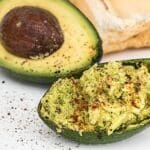Veganism encompasses more than just adhering to a particular diet; it is a lifestyle choice and an alternate way of living. People may choose to adopt a vegan diet either for ethical reasons, such as to reduce animal cruelty, or for health reasons.
You may be aware of the health advantages of consuming more vegetables and less meat. Due to various reasons, veganism is becoming increasingly popular. It presents several health benefits, including improved control over blood sugar levels and heart health. Additionally, it can assist in losing weight if that is your goal.
The aim of this article is to offer a comprehensive guide to veganism, allowing you to consider whether it is a suitable lifestyle choice for you.
Vegan Nutrition
To ensure a healthy vegan diet, having a diverse range of foods is important. This includes incorporating fruits, vegetables, leafy greens, whole grains, nuts, seeds, and legumes for a well-rounded plant-based diet.
Protein
Getting enough protein on a vegetarian diet can be challenging, and following a vegan diet requires additional attention to ensure sufficient protein intake. The key is to eat a variety of foods. Plant-based sources of protein include lentils, chickpeas, tofu, peas, peanut butter, soy milk and other plant-based milks, almonds, spinach, broccoli, kale, and nutritional yeast.
Fat
By avoiding cholesterol and reducing saturated fat intake, adopting a vegan diet can easily align with guidelines for mitigating the likelihood of severe illnesses like heart disease and cancer. However, it’s advised to consume high-fat foods like oils, margarine, nuts, nut butter, seed butter, avocado, and coconut in moderation.
Vitamin D
In a vegan diet, vitamin D is absent but can be synthesized in the body after exposure to sunlight. Additionally, vitamin D can be obtained from soy, rice, almond, cashew, and grain milk that have been fortified with it.
Calcium
Dark green vegetables, calcium-fortified tofu and soy milk, as well as orange juice and several other vegan foods all contain calcium.
While reducing the consumption of animal protein might lower the amount of calcium lost, it is currently not enough to suggest that vegans need less calcium. Thus, it is important for vegans to intake calcium-rich foods and supplements. Some great sources of calcium include okra, turnip greens, soybeans, tempeh, almond butter, broccoli, bok choy, and commercial soy yogurt.
Zinc
Zinc levels equivalent to or higher than the recommended daily allowance can be achieved through vegan diets. Additionally, zinc can be found in grains, legumes, and nuts.
Iron
Beans and dark green leafy vegetables are rich in iron and have a greater nutritional value per calorie than meat. If you eat vitamin C-rich foods with iron-rich foods, your body can absorb iron more efficiently.
Iron can be found abundantly in various foods such as lentils, soybeans, blackstrap molasses, kidney beans, Swiss chard, chickpeas, tempeh, black-eyed peas, tahini, prune juice, beet greens, bulgur, black beans, bok choy, peas, raisins, watermelon, millet, and kale.
Pros of a Vegan Diet
Opting for a vegan diet brings about several advantages. Notably, individuals who prioritize their health will come to realize that a vegan diet offers plentiful health benefits. Nonetheless, irrespective of one’s motivation, be it health, ethical or environmental, the advantages of following this lifestyle are substantial.
1. Could Aid Weight Loss
By transitioning from a diet that relies heavily on meat to one that is plant-based, the likelihood of developing obesity decreases. A vegan diet can facilitate weight loss without necessitating conscious calorie reduction, owing to the fact that high-calorie options are swapped for high-fiber alternatives that are lower in calories and leave you feeling satiated for a longer duration.
Vegans have been observed to have a leaner physique and lower BMI compared to non-vegans in several studies. Furthermore, research has shown that individuals adhering to a low-fat, high-fiber vegan diet lost more weight than those following a typical low-fat diet.
2. Lower Your Cancer Risk
According to research, vegans have a tendency to eat more beans, fruits, and vegetables compared to those who are not vegans. This results in a potential 15% decrease in cancer risk for vegans.
In addition, adopting a vegan diet can decrease the chances of developing tumors in the colon, prostate and pancreas. Additionally, soy-based foods, which are more abundant in vegan diets, have been shown to potentially reduce the risk of breast cancer. Conversely, frequent consumption of high-fat dairy products has been linked to an elevated likelihood of developing breast and prostate cancer.
Excessive intake of red meat, smoked meat, processed meats, and meats cooked at high heat may lead to the development of some types of cancer. Individuals who follow a vegan diet naturally steer clear of these foods as it excludes any meat.
Consequently, this could lower their chances of developing cancer. Yet, following a vegan diet that includes unhealthy food and lacks sufficient nutrients could have a negative impact. Hence, such broad statements do not accurately depict the optimum scenario.
3. Lower Blood Sugar Levels
There is a clear understanding of the relationship between one’s diet and type 2 diabetes. As evidenced by their decreased blood sugar levels and heightened insulin sensitivity, vegans may experience reduced risk of developing this condition.
A study has revealed that a vegan diet is more effective than the recommended diet in reducing blood sugar levels in individuals with diabetes. Furthermore, plant-based meals contain lower levels of saturated fats compared to animal-based foods, which can result in higher cholesterol levels and a higher risk of developing type 2 diabetes. Additionally, the consumption of a vegan diet can help alleviate symptoms of peripheral neuropathy, which is a typical condition among individuals with diabetes.
4. Lower your Blood Pressure
The possibility of developing health issues such as heart disease, stroke, and type 2 diabetes increases with hypertension (high blood pressure). The good news is that your diet can potentially affect this. Eating a plant-based diet has been shown by numerous studies to lower blood pressure and reduce the likelihood of certain diseases.
5. Lower Risk of Heart Disease
The intake of excessive saturated fat from eating meat can lead to heart issues. Therefore, prioritizing plant-based foods in your diet can improve heart health. However, it’s not only about reducing meat consumption but also ensuring that the plant-based foods you consume provide adequate nutrition.
To decrease the likelihood of heart disease, it is essential to have a well-balanced plate that incorporates whole grains, legumes, fruits, vegetables, and beneficial oils (such as olive oil) instead of unhealthy plant-based options like refined grains and sugary drinks. A study reveals that following this type of diet can reduce the risk of heart disease by up to 46%.
6. Contributes to Fiber Content
Consuming 30 grams of fiber per day is recommended by doctors and nutritionists, but it’s rare for us to do so. Opting for a plant-based diet would simplify the achievement of our daily fiber intake.
Our stools can be bulked up by insoluble sources of fiber, while water can be absorbed by soluble fiber, making it easier to avoid constipation. Whole grains like brown rice, quinoa, and oats, as well as legumes such as black beans, chickpeas, split peas, and lentils, as well as nuts and seeds are all excellent sources of fiber for a vegan diet.
7. Lower Pain from Arthritis
Following a vegan diet that includes antioxidant-rich and natural foods might benefit individuals with osteoarthritis and rheumatoid arthritis.
Studies indicate that the inclusion of a vegan diet can alleviate rheumatoid arthritis symptoms, such as joint swelling, pain, and morning stiffness. This can be attributed to the elevated levels of antioxidants, probiotics, and fiber in the vegan diet and the absence of specific trigger foods.
Cons
8. Limited Food Choices
The plant-based diet which omits all animal products, also known as veganism, is commonly viewed as the most limiting form. If one decides to switch to this dietary regimen from a traditional American diet, they should anticipate the omission of the majority of their usual weekly food options. This degree of limitation can be excessive for certain individuals.
To fully grasp the extent of the limitation, keep in mind that it goes beyond just getting rid of animal products. It also involves getting rid of any food or product that has an animal derivative in it. A lot of conventional homemade dishes, grocery items, and restaurant meals contain at least one animal derivative.
Although many vegans claim that their diet offers an abundance of food options, it could be restrictive initially due to its significant difference from your usual eating habits.
9. Possible Nutritional Deficiencies
While a vegan diet can be beneficial for one’s health, it is crucial to address potential nutritional deficiencies. Studies have revealed that calcium, which is necessary for bone formation, muscle contraction, and other essential bodily functions, is often insufficient in vegan diets.
By consuming calcium-enriched foods like legumes, sesame seeds, some types of dehydrated fruits, green leafy veggies, and plant-based milks, non-dairy yogurt, or cereal with additional calcium, vegans can boost their calcium intake.
Cobalamin, also known as Vitamin B-12, may be deficient in a person’s diet due to its abundance in animal-based foods. This vitamin is crucial for the proper functioning of the nerves and the production of blood cells. If there is a shortage, it can result in pernicious anemia.
Researchers have discovered that individuals who follow a vegetarian or vegan diet may require supplements, despite the usefulness of certain seaweed, mushrooms, and fermented foods as a source of this crucial B-complex vitamin.
The matter of protein may arise, however, it is a problem that can be resolved with ease. Amino acids are the essential elements that constitute proteins. Your body requires amino acids to keep your organs, muscles, and vital functions functioning adequately. Essential amino acids are the ones which your body cannot produce, thus you must acquire them from the food you consume.
Animal proteins possess all the essential amino acids, but plant proteins lack one or more of these amino acids. Therefore, consuming diverse protein sources is essential to guarantee the adequate supply of all necessary amino acids.
To be fair, other diets may also lack vitamin D as it is mostly obtained through sunlight exposure. However, vegan diets are also prone to having a vitamin D deficiency.
Maitake and portobello mushrooms that have been exposed to UV light are two vegan sources that may be rich in vitamin D. In addition, fortified nut milks can contribute to vitamin D intake, particularly in winter. Nevertheless, there are situations where taking a vitamin D supplement may be necessary.
The absence of eicosapentaenoic acid and docosahexaenoic acid in a vegan diet can result in a deficiency of nutrients that are essential for optimal heart, eye, and brain function. However, incorporating foods like soy, chia seeds, flax, walnuts, and pumpkin can boost the consumption of alpha-linolenic acid, an omega-3 fatty acid that is converted by the body into the two missing forms.
Nonetheless, it may be necessary to use a micro algae supplement to enhance your diet. In addition, if you are with child, it’s crucial to consult your healthcare professional to ensure adequate intake of omega-3s throughout the gestation period.
Iron is a nutrient that vegans need to pay attention to. The Vegan Society suggests that sources of iron in plants that are beneficial include lentils, chickpeas, beans, tofu, chia seeds, ground linseed, cashew nuts, hemp seeds, pumpkin seeds, kale, dried apricots and figs, raisins, quinoa and fortified breakfast cereal.
10. Requires Diligence
If someone adheres to a vegan diet, they must get used to scrutinizing nutritional labels and ingredient lists, particularly when consuming processed food. Some foods believed to be devoid of animal by-products might contain non-compliant ingredients like gelatin, casein, whey, honey, among others.
To maintain a healthy vegan diet, it is crucial to thoroughly examine nutrition labels. It is imperative to select foods that offer vital minerals and vitamins to prevent any lack in nutrition.
11. Difficulty Dining Out
Consumers are able to peruse product details while searching for vegan-acceptable food. Unfortunately, if one is dining at an establishment or in someone’s home, they will not have access to a breakdown of ingredients. As a result, adhering to a vegan diet can be tough when eating out.
Not many restaurants indicate vegan or vegetarian options on their menus. You can possibly form a vegan dish using their existing salads or side dishes. Nonetheless, it’s important to inquire and confirm that animal products are not utilized in the cooking process.
Inquiring about food options may not always provide clarity. There are instances where restaurant employees (or loved ones) may believe that plant-based dishes are vegan as long as they lack dairy, but this isn’t necessarily true. For instance, vegetable soup could include animal bone broth for added taste.
According to numerous vegan specialists, it is advisable to carry a recipe that you find delicious and can exchange with your hosts when invited for dinner at their home. Additionally, opt for restaurants that have experience in serving vegan food.
It was determined by researchers that the vegan diet, which is healthier, significantly decreased the likelihood of developing heart disease, whereas the vegan diet that is not as healthy was linked to an increased risk.
13. Social Isolation
Friends, family, coworkers, and other acquaintances may scrutinize one’s dietary choices. Despite the normalization of veganism and the increased availability of plant-based foods, individuals may still encounter objections and inquiries regarding their decision to follow this lifestyle.
Besides, individuals who are unaware of how to cater to your dietary requirements might intentionally leave you out from social events. Alternatively, they might ask you to join and push you to consume non-vegan foods.
There are vegan blogs that offer advice on these matters and assist individuals who are transitioning to the vegan lifestyle. Professionals suggest connecting with other vegans within your locality and forming a support system, and also being tolerant of those who may not comprehend your decisions.



